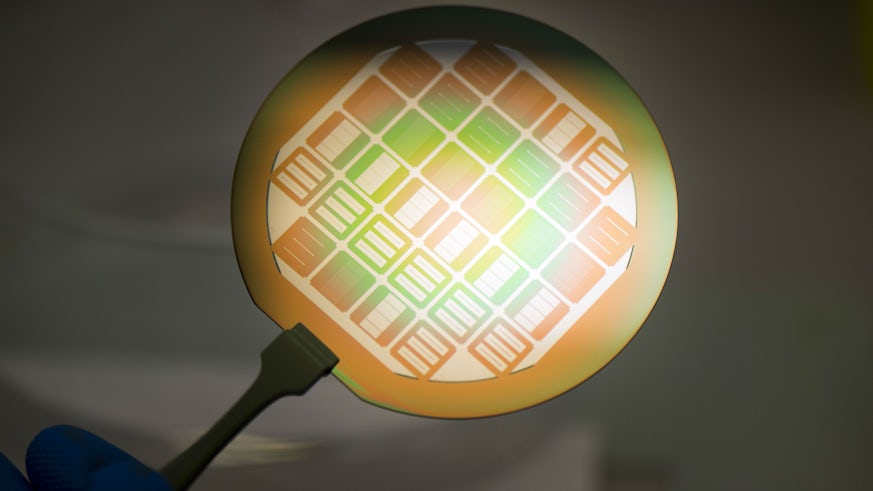Cardiff in bid to build mini atomic clock
15 November 2018

A bid to create a high-performance miniature atomic clock that drives future technologies is being partnered by Cardiff University and the Compound Semiconductor Centre (CSC).
Funded by Innovate UK, Project KAIROS will link partners to develop the pre-production prototype of a compact caesium clock that will power 5G networks.
The clock could be used in a wide range of future applications including reliable energy supply, safe transport links, 5G mobile communications, data networks and electronic financial transactions.
Professor Peter Smowton, Managing Director of Cardiff University’s ERDF-funded Institute for Compound Semiconductors said: “This is a really exciting, two-year program that should lead to a complete UK-based Compound Semiconductor manufacturing supply chain. It will include everything from the initial crystalline growth on wafers – known as epitaxy – through to fabrication and device packaging to create a wide range of future applications.”
The precise measurement of time is fundamental to the effective functioning of services that currently rely on Global Navigation Satellite Systems (GNSS).
However, GNSS timing signals can be easily disrupted, either accidentally or maliciously. Reliance on vulnerable GNSS led InnovateUK to commission a report published by London Economics in June 2017. It estimated the impact on the UK economy of a five-day GNSS failure at £5.2bn.
Dr Wyn Meredith, Managing Director of CSC – a joint venture between Cardiff University and Cardiff-based CS specialists IQE, said: “There is growing demand for timing solutions that are not GNSS dependent.
The next generation miniature atomic clock arising from this project fulfills this need. It will find widespread application in precision timing for mobile base stations network servers for financial services, data centres, national power distribution networks and air traffic control systems.
Led by Teledyne e2v, others partners include the National Physics Laboratory, Leonardo, Altran, ICS Ltd, HCD Research, Optocap and University of York.
Project KAIROS is accompanied by a second major Challenge Fund win for CS Connected – the world's first compound semiconductor cluster based in South Wales.
Cluster partner IQE is participating in the Agile Quantum Safe Communications (AQuaSec) project.
Led by Toshiba Research Europe Limited, it will develop technologies for “quantum-safe" communications, building prototypes that combat the increased vulnerability to cyber-security threats brought about by quantum computing capabilities.
Share this story
Learn how our cutting-edge research, technology transfer, business development and student enterprise drive our vision.



